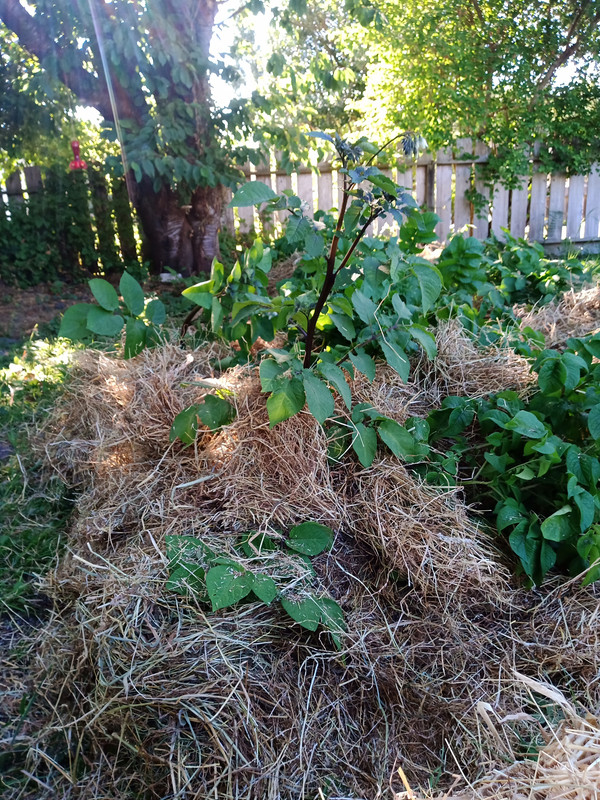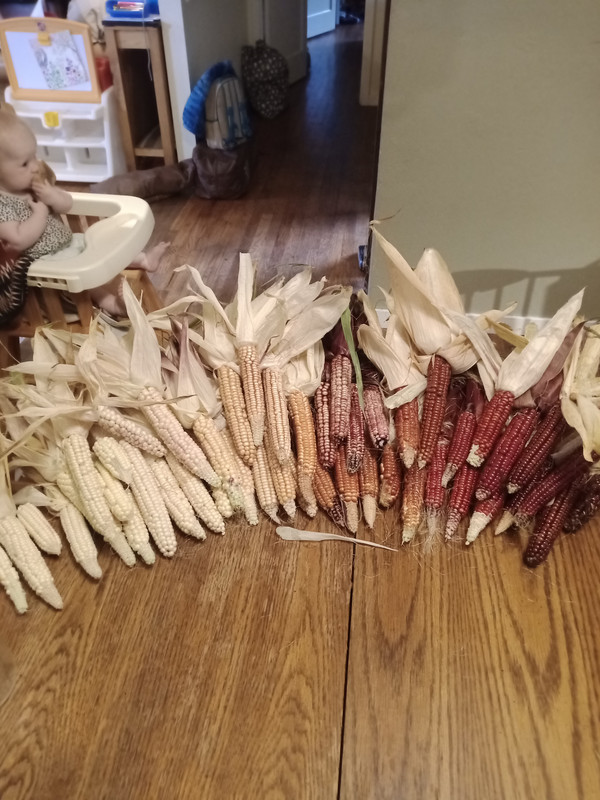

 2
2




Jen Fan wrote:Wonderful work
I need self-pollinating varieties for my greenhouse. Your seed info page says they're "promiscuously pollinated", is this self-pollinating?










 2
2





 6
6





 2
2




Works at a residential alternative high school in the Himalayas SECMOL.org . "Back home" is Cape Cod, E Coast USA.





 5
5




![Filename: Lofthouse-maxima-squash.jpeg
Description: Lofthouse maxima squash [Thumbnail for Lofthouse-maxima-squash.jpeg]](/t/73551/a/92122/Lofthouse-maxima-squash.jpeg)
![Filename: Lofthouse-maxima-squash-pumpkin-Dec-1-2019.jpg
Description: Maxima squash opened on December 1st [Thumbnail for Lofthouse-maxima-squash-pumpkin-Dec-1-2019.jpg]](/t/73551/a/96350/Lofthouse-maxima-squash-pumpkin-Dec-1-2019.jpg)
Works at a residential alternative high school in the Himalayas SECMOL.org . "Back home" is Cape Cod, E Coast USA.
 4
4




 1
1






 2
2










 3
3




Failure is a sign of activity and learning. It had nothing to do with under achievement
I never want to have a team member who has never failed - They are not doing!! 👍





 5
5




 5
5




Joseph Lofthouse wrote:Lofthouse-Astronomy Sweet Corn
(source)
My introduction to landrace growing came with a packet of Astronomy Domine Sweet Corn seed from a landrace developed by Alan Bishop of Pekin Indiana. It is a multi-colored sweet corn. He combined hundreds of varieties of sweet corn into a single population. I fell in love with the colors, and the different shapes of cobs, and the colorful silks, and that every plant grew differently from any other.
I have been growing it ever since. After many years, the genetics of the population have shifted to be more adapted to my farm, so I call it Lofthouse-Astronomy now to distinguish it from other populations. For example, my population is more colorful than the original, and about 10 days earlier. My population is more resistant to pheasants and small mammals.
Lofthouse-Astronomy is old fashioned sweet corn, therefore, it germinates very reliably in cold spring weather. Kernels are chewy, and not sickly sweet. Flavor is robust, and variable due to different colored kernels contributing different flavors to each bite. Mmm. Mmm. Mmm. Adding a hint of vinegar to the cooking water really helps to brighten the colors on the table.
Loving the colors of the cobs.
Loving the diversity of the tassels.
Good Growing!

 5
5




- Tim's Homestead Journal - Purchase a copy of Building a Better World in Your Backyard - Purchase 6 Decks of Permaculture Cards -
- Purchase 12x Decks of Permaculture Cards - Purchase a copy of the SKIP Book - Purchase 12x copies of Building a Better World in your Backyard
 2
2




My alter ego who has a potty-mouth wrote a book. Check it out here: https://www.amazon.com/Adulting-101-your-straight-succeed/dp/1732148503/ref=sr_1_5?crid=3FBIUWQCJQAPM&keywords=adulting+101&qid=1675194062&sprefix=adulting+101%2Caps%2C96&sr=8-5




Joseph Lofthouse wrote:I am not personally selling seeds any more. I don't want to sell living beings, who I consider to be my children.
Experimental Farm Network is the near-exclusive distributor of seeds grown on my farm. Giving Ground Seeds and Buffalo Seed Company sell many varieties. Snake River Seed Cooperative distributes some of my varieties, grown by regional farmers. Baker Creek Heirloom Seeds sells Astronomy Domine sweet corn. The following seed companies carry a few varieties: Wild Mountain Seeds, Seed Savers Exchange, High Ground Gardens, Miss Penn's Mountain Seeds, and Hawthorn Farm Organic Seeds. Check http://Lofthouse.com for additional sellers.
Slow is smooth, smooth is fast.

 10
10








 10
10




 1
1









 1
1




Joseph Lofthouse wrote:I haven't tasted any of these pits.
 4
4





 7
7




 7
7




Christopher Weeks wrote:I guess it was this time last year that I got a box of Joseph's apricot seeds. They grew like bonkers here in Northern Minnesota -- just super-vigorous. And now we'll be testing to see if they can survive our winter!
“The most important decision we make is whether we believe we live in a friendly or hostile universe.”― Albert Einstein

 8
8





| I agree. Here's the link: http://stoves2.com |









